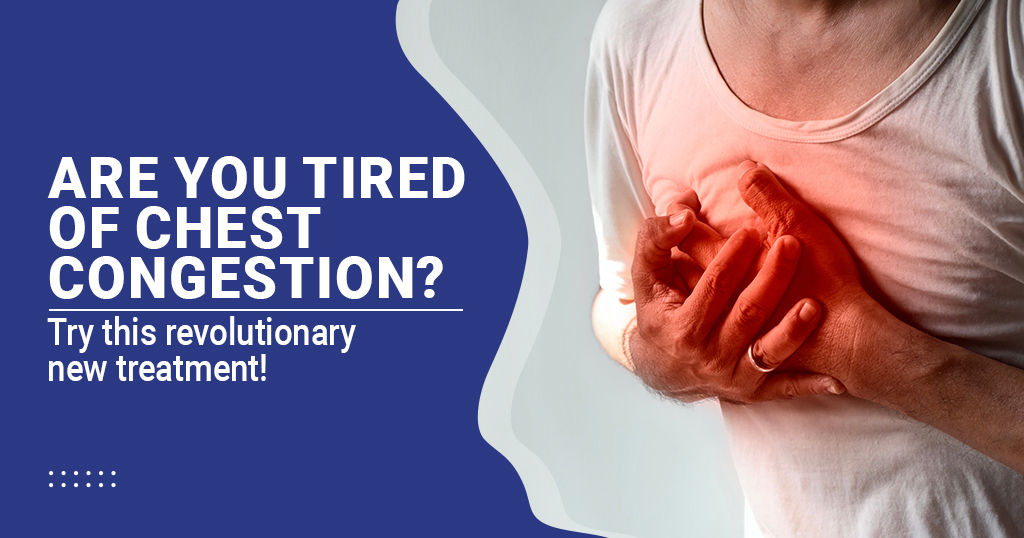Effective Chest Congestion Medicine Find Relief Today
What Is Chest Congestion?
Chest congestion is a common respiratory condition characterized by a buildup of mucus in the airways and lungs. It can cause discomfort, difficulty breathing, and a persistent cough. Understanding the causes and symptoms of chest congestion is crucial for effective management.

Effective Chest Congestion Medicine Find Relief Today
Chest congestion can result from various factors, including respiratory infections (such as colds or the flu), allergies, smoking, and environmental irritants. Identifying the underlying cause is essential for selecting the right chest congestion medicine.
Key Symptoms of Chest Congestion
Recognizing the symptoms of chest congestion is essential for early intervention. Typical symptoms include a heavy feeling in the chest, coughing with or without mucus, shortness of breath, and chest discomfort. These symptoms can vary in severity.
Exploring Chest Congestion Medicine
Types of Chest Congestion Medicine
There are various types of chest congestion medicine available, including expectorants, decongestants, and antihistamines. Each type serves a different purpose in managing chest congestion, and it’s important to choose the right one based on your specific symptoms.
Benefits of Chest Congestion Medicine
Chest congestion medicine can provide several benefits, such as loosening mucus, reducing inflammation, and relieving discomfort. Understanding the advantages of these medicines can help you make an informed decision about treatment.
How to Use Chest Congestion Medicine
To maximize the effectiveness of chest congestion medicine, it’s essential to use it correctly. This section will provide guidance on dosage, administration, and any precautions you should be aware of when using these medicines.
Over-the-Counter vs. Prescription Medicine
Chest congestion medicine is available both over-the-counter (OTC) and by prescription. We will explore the differences between these options, including their effectiveness and when to consult a healthcare professional.
Effective Chest Congestion Medicines
Expectorants: Loosening Mucus
Expectorants are a common type of chest congestion medicine that helps thin and loosen mucus in the airways, making it easier to cough up. We’ll explore how these medicines work and their potential benefits.
Decongestants: Reducing Swelling
Decongestants work by narrowing blood vessels in the nasal passages and reducing inflammation in the airways. This section will discuss their role in relieving chest congestion and considerations for use.
Antihistamines: Allergy-Related Congestion
Antihistamines are often used to alleviate chest congestion caused by allergies. We will explore how antihistamines work, their potential side effects, and when they are a suitable choice.
Combination Medicines: Targeted Relief
Some chest congestion medicines combine multiple active ingredients to provide comprehensive relief. We’ll discuss the advantages of these combination medicines and when they may be appropriate.
Precautions and Considerations
It’s essential to use chest congestion medicine safely. This section will outline precautions and considerations, including potential interactions with other medications and when to seek medical advice.
Choosing the Right Chest Congestion Medicine
Individualized Treatment Selection
Choosing the right chest congestion medicine requires considering your specific symptoms and underlying health conditions. We’ll provide guidance on making an informed decision that aligns with your unique needs.
Common Side Effects and Precautions
Understanding the potential side effects and safety precautions associated with chest congestion medicine is essential. This section will provide insights into what to watch for and how to use these medicines safely.
Chest Congestion Medicine for Children
When children experience chest congestion, it’s crucial to choose the right medicine designed for their age and needs. We’ll discuss safe options and dosing guidelines for pediatric chest congestion relief.
Natural Remedies and Home Care
In addition to over-the-counter and prescription medicines, natural remedies and home care techniques can provide relief. We’ll explore these alternatives and their effectiveness in managing chest congestion.
Frequently Asked Questions (FAQs) About Chest Congestion
1. What causes chest congestion?
Chest congestion is often caused by a buildup of mucus in the airways due to respiratory infections, allergies, smoking, or environmental irritants.
2. Is chest congestion a sign of a more severe respiratory condition?
Chest congestion can be a symptom of various respiratory conditions, including the common cold, flu, bronchitis, or pneumonia. It’s essential to monitor your symptoms and seek medical advice if they worsen.
3. How does chest congestion affect breathing?
Chest congestion can make breathing difficult by narrowing the airways and restricting airflow. It may lead to shortness of breath and discomfort.
4. Can I treat chest congestion at home?
Yes, mild chest congestion can often be relieved at home using over-the-counter chest congestion medicine, humidifiers, steam inhalation, and staying hydrated.
5. When should I see a doctor for chest congestion?
You should consult a doctor if chest congestion persists for more than a few days, is accompanied by high fever, chest pain, or severe shortness of breath, or if you have a history of respiratory conditions.
6. Are there specific chest congestion medicines for children?
Yes, there are chest congestion medicines designed specifically for children. Always follow pediatric dosing guidelines and consult a pediatrician for guidance.
7. Can I take chest congestion medicine with other medications?
It’s essential to consult a healthcare provider or pharmacist before combining chest congestion medicine with other medications to avoid potential interactions.
8. How long does it take for chest congestion medicine to work?
The effectiveness of chest congestion medicine can vary. Some may provide relief within a few hours, while others may take a day or more. Follow the recommended dosing instructions.
9. Are natural remedies effective for chest congestion?
Natural remedies like steam inhalation, saline nasal sprays, and herbal teas can provide relief for mild chest congestion. However, severe cases may require medication.
10. Can I prevent chest congestion?
You can reduce the risk of chest congestion by practicing good hygiene, avoiding smoking and exposure to irritants, and getting vaccinations to prevent respiratory infections like the flu.
Conclusion:
Your journey to managing chest congestion effectively begins with informed decision-making. Take the time to understand your symptoms, explore your options, and choose the most suitable chest congestion medicine or remedy.




